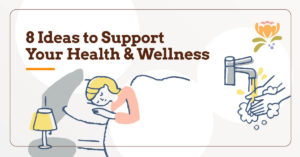 Is a reverse mortgage the right option for you or your loved one?
Is a reverse mortgage the right option for you or your loved one?
A reverse mortgage can be an excellent funding source for someone who is looking for help paying for Home Care or home modifications to establish a safe home environment.
The following is some basic information on reverse mortgaging as well as a discussion about some of the myths associated with this option.
What is a Reverse Mortgage?
A reverse mortgage is a loan for homeowners 62 years of age or older that uses the homes equity as collateral.
Generally, this loan is not required to be repaid until the last surviving homeowner passes away or permanently vacates the home. At a time when this does take place the estate is given approximately 6-12 months to pay off the balance of the reverse mortgage. This can be done directly if the surviving family members wish to retain the home or the home can be sold to pay off the balance as well. If the home is sold, any remaining equity is inherited by the estate.
The estate is not personally responsible if the home sells for less than the remaining balance of the reverse mortgage.
How do I know if I’m eligible?
In order to be eligible for a HECM reverse mortgage, the FHA (the Federal Housing Administration) requires the homeowner to be 62 years of age or older. The individual must also own their home free and clear of any existing liens or be able to satisfy any such liens with proceeds from the reverse mortgage.
Most types of homes are eligible, however mobile homes must have been built within the last 30 years and the applicant must own the land.
How can the money be used and how does the homeowner access it?
Monies received from a reverse mortgage can be used for a variety of purposes and enables the senior to remain in their own home.
Some examples are:
- To pay for In-Home Care
- For maintenance, repairs or modifications of the home.
- For daily living expenses.
Common myths about reverse mortgages
1. The Homeowner could get forced out of the home.
The HECH reverse mortgage was created specifically to allow elders to live out their lives with care if necessary in their own home. The homeowner can never be evicted or foreclosed on for non-payment since they are receiving payments rather than making them to a lender.
2. The Homeowner can outlive the reverse mortgage.
This is a common myth. The reality is that the reverse mortgage becomes due when all homeowners have moved out of the home for 12 consecutive months or have passed away.
3. Social Security and Medicare will be affected.
Social Security and Medicare are not affected by a reverse mortgage. However, some needs-based programs such as Medicaid may be affected. A reverse mortgage specialist can help you to determine any impact it may have on government benefits.
4. There are large out-of pockets expenses attached to reverse mortgage.
Generally, the only out-of-pocket expense attached is the cost of mandatory reverse mortgage counseling prior to qualifying. Typically the cost of this counseling is approximately $125-$150, but may vary by region.
For more information on this topic and other funding sources for Home Care visit our Senior Resource Center in our Central Office in Meriden, CT.





